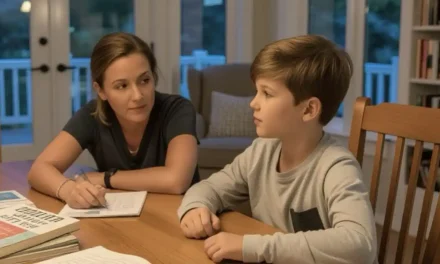
Wandering Freely: Follow Their Whims
C
hildren often notice what adults overlook—a glint on a leaf, a pattern in dirt, a pause in the wind. But modern life rarely stops to let them follow those threads. When you slow down and chase their curiosities without rushing toward a lesson, you’re doing more than sharing a moment. You’re teaching them that attention matters. Whether they’re poking at a snail or humming a tune, the freedom to wonder trains their minds to stay open. And your presence tells them that whim isn’t a distraction—it’s the beginning of something worth exploring.
One afternoon, my son noticed a marble glinting in the driveway. I crouched beside him and said, “That’s a good find.” He turned it in his hand, marveling at its swirls, then darted off to look for more. I followed and asked, “Anything else catching your eye today?” He pointed to reflections, pebbles, shadows. Our walks became treasure hunts, where each outing offered a new pattern to notice or a sound to trace. What stayed with him wasn’t any single discovery—it was the feeling that his sense of wonder could lead the way.
Let their whims guide you at least once a week. If something sparks their interest—a strange sound, a textured wall, a flash of light—pause with them. Join the detour. Later, bring it up in a quiet moment: “Remember that marble you found? It reminded me of how glass changes in sunlight.” These acts of noticing and returning give curiosity a rhythm. The more it’s honored, the more it grows—not out of pressure, but out of joy.
Wandering Freely

Wandering Freely: Cheer Their Bold Ventures
Celebrate when children take brave steps into new challenges. Encouragement builds confidence, resilience, and a sense of personal strength.

Wandering Freely: Roam Without Aim
Unstructured exploration nurtures imagination and self-direction. Give children room to wander, wonder, and discover what draws them.
Table of contents

Primordial Soup for the Mind: Navigation
Navigate the book Primordial Soup for the Mind.
TIPS
- Treat small, fleeting interests as real expressions of curiosity.
- Avoid redirecting them toward “more serious” learning.
- Ask what they’ve noticed and what caught their eye.
ACTIVITIES
- Mini Field Study: When your child fixates on something—bugs, puddles, bricks—help them document it with notes, sketches, or questions.
- Echo Interest: Find a book, video, or article connected to their latest obsession. Follow it together and see where it leads.
EXAMPLE
My son collected marbles for a week. It seemed like a passing interest—but it pulled him into texture, light, and pattern. His curiosity wasn’t aimless. It was paying attention.

Download “Primordial Soup for the Mind: A Parent’s Guide to Nurturing Intellectual Growth”
Enter your information to get this article and hundreds more as part of the FREE book Primordial Soup for the Mind.
Share your thoughts with the Thought Academy community in the Comments section below.

Sharpen those skills!
Enter your information to get our FREE practice exercises so you can hone your critical thinking and reasoning skills!







0 Comments